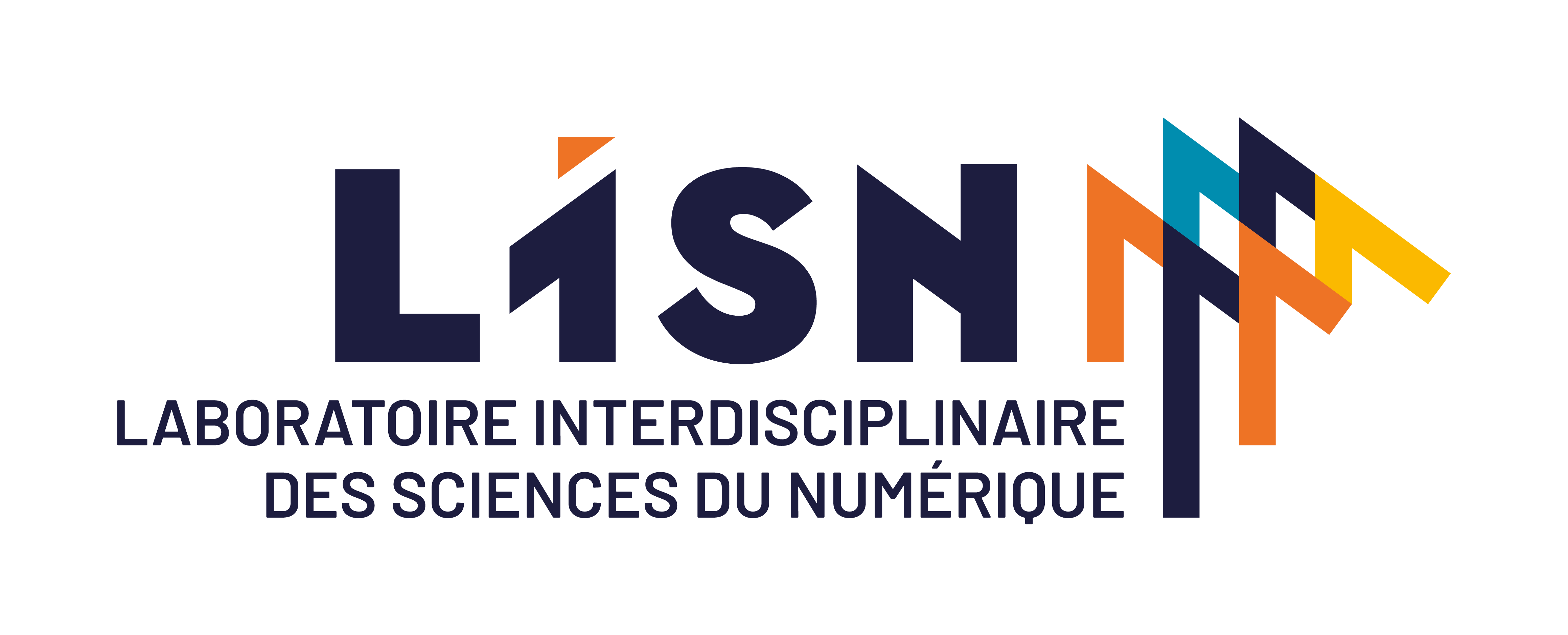David Rei, PhD Researcher
I worked at LISN (formerly LIMSI-CNRS) from January to August 2019 as an Engineer.
I did my PhD thesis from September 2019 to March 2024 on the subject: "Human-Machine Interactions Adapted to the Personality of Users: Application of Motivation to Physical Activity". This thesis was funded by a university scholarship supported by Paris-Saclay University (formerly Paris-Sud University).
LISN stands for "Laboratoire Interdisciplinaire des Sciences du Numérique", Interdisciplinary Laboratory of Digital Sciences. LISN is located in Orsay, a city south of Paris, France.
Supervision
My PhD work was directed by Jean-Claude Martin, Professor of Computer Science at Paris-South 11 University and Head of the Group "Cognition, Perception and Usability" at LISN.
It was also co-supervised by Céline Clavel, Assistant Professor of Psychology and Brian Ravenet, Assistant Professor in Human-Computer Interaction.
Contact
Since September 2024, I am not affiliated with LISN anymore, so it's best if you contact me by e-mail directly:
david[at]exploptimist.eu


Research Topics - Thesis summary
My PhD thesis is available online through theses.fr .
Physical activity is a known and documented public health issue, but it is necessary to motivate people to practice it. Many walking interventions with tracking devices, such as pedometers or cell phones, have been designed to motivate users to walk, and have indeed led to an increase in physical activity, but only in the short term, as the positive effects of these interventions quickly fade away. Beyond the novelty effect of a device or mobile application, it's the lack of personalization and adaptation to the user that seem to diminish the longer-term effects of walking interventions.
In this thesis, we propose a new adaptive human-computer interaction model for cell phone walking motivation: PADME (Personality-based Adaptive moDel for Motivation in E-health). This model is inspired by two psychology theories: self-determination theory, which describes three fundamental needs to be satisfied in order to achieve a state of motivation and well-being, and regulatory focus theory, which describes individuals' action strategies as a function of context, their goal and how to achieve it. Our HCI model also takes into account user activity, so as to offer motivational interactions adapted to the user's profile.
We iteratively implemented this model in an interactive Android mobile application and evaluated its effectiveness in terms of walking performance and motivation in three longitudinal field studies. The first study implemented the dimension of adapting a daily walking goal to the user's performance. The results showed an increase in walking in the short term, followed by a decrease in use of the application and in user performance. The second study added the dimension of adapting motivational text messages. The motivational messages were adapted to users' regulatory focus profile. The results were encouraging, particularly as regards the reduction in user amotivation, but we again observed a decline in the use of the application over the longer term. The aim of the third study was to evaluate the gamification adaptation dimension of our model. Our gamification takes into account both the theory of self-determination and the theory of regulatory focus to propose a gamified interaction adapted to the user's profile.
We propose perspectives on the joint use of these two theories for motivating walking on mobile phones and in terms of recommendations for motivational HCI for walking and other physical activities.
Teachings
Total number of hours: 473h.
-
2019-2020
- Advanced databases (DUT 2 - S3) - 36 h
- Object oriented programming - basics (DUT 1 - S2) - 21 h
-
2020-2021
- Advanced databases (DUT 2 - S3) - 18 h
- Object oriented programming - basics (DUT 1 - S2) - 42 h
-
2021-2022
- Advanced databases (DUT 2 - S3) - 18h
- Object oriented programming - basics (BUT 1 - S2) - 42h
- Project monitoring (BUT 1 - S2) - 6h: "Analysis and Quality"
-
2022-2023
- Object oriented programming - basics (L2 Computer Science - S3) - 24h
- Databases 2 (L3 Computer Science - S6) - 12h
- Databases 2 Miage (L3 Computer Science Miage - S6) - 12h
- Web Programming (L3 Computer Science - S6) - 48h
-
2023-2024
- Object oriented programming - basics (L2 Computer Science - S3) - 48h
- Databases 2 (L3 Computer Science - S6) - 12h
- Databases 2 Miage (L3 Computer Science Miage - S6) - 12h
- Web Programming (L3 Computer Science - S6) - 48h
- Object oriented programming and software engineering (L3 Computer Science - S6) - 48h
- UML (Polytech ET3 - S6) - 14h
- Human-Machine Interaction (Polytech ET3 - S6) - 12h
Publications and communications
- David Rei. "Interactions Humain-Machine Adaptées à la Personnalité des Utilisateurs : Application de Motivation à l'Activité Physique". PhD thesis. Université Paris-Saclay, 2024. URL: https://hal.science/tel-04538519/
- David Rei. PADME. Version v57 and v77. June 2024. URL: https://hal.science/hal-04614660
- REI, David, CLAVEL, Céline, MARTIN, Jean-Claude, et al. Adapting goals and motivational messages on smartphones for motivation to walk. Smart Health, 2024, vol. 32, 100482. 12 pages. https://doi.org/10.1016/j.smhl.2024.100482 .
- David Rei, Celine Clavel, Jean-Claude Martin, Brian Ravenet. Intervention mobile pour la motivation à marcher : Impact de l'adaptation des objectifs et des messages motivationnels. Colloque en TéléSANté et dispositifs biomédicaux, Université Paris 8, CNRS, Jun 2023, Paris Saint Denis, France. 13 pages. ⟨hal-04220657⟩
- Rei, D, Ravenet, B., Martin, J.-C., Clavel, C. 2022. Daily Walking in a Mobile Personalised Coaching Application: Combining Self-Determination Theory and Regulatory Focus Theory for Motivation. Abstract and Oral presentation for ECPP 2022 (European Conference on Positive Psychology) , Reykjavik, Iceland.
- David Rei, Brian Ravenet, Jean-Claude Martin, and Céline Clavel. 2020. PADMEH: Personality-based Adaptive moDel for Mobile E-Health. In Proceedings of the 4th HUMANIZE Workshop. 25th International Conference on Intelligent User Interfaces Companion (IUI '20). March 2020. Cagliari, Italy. 6 pages. [Link]
- David Rei, Céline Clavel, Jean-Claude Martin, Brian Ravenet. Adaptation statique et dynamique de l'objectif quotidien de marche dans des interactions humain-machine motivationnelles mobiles. Présentation orale pour la Journée FEDEV 2022. Octobre 2022, Palaiseau, France.